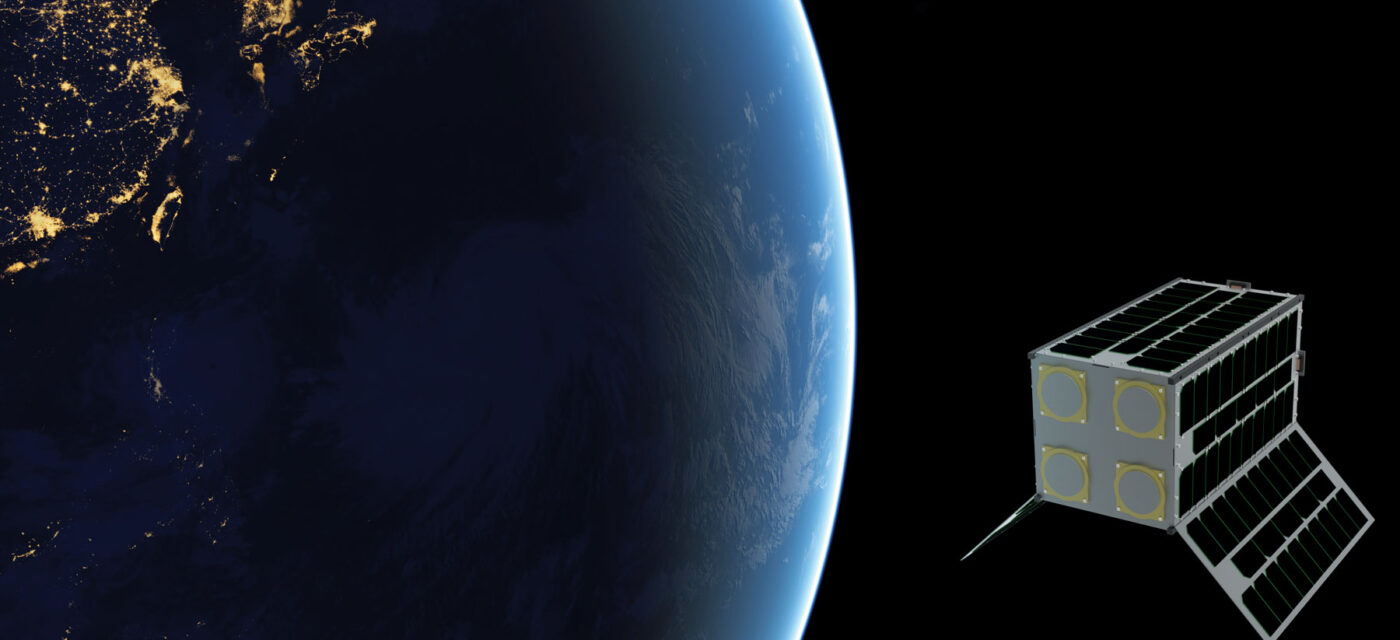Stars, including our own Sun, can release huge amounts of energy during outbursts called flares. The most intense ones pose a danger to modern society through disruption to electricity grids, satellite systems and the Earth’s climate. Blue Skies Space’s new satellite Mauve is designed to monitor the flaring activity of stars that are hosts to potentially habitable exoplanets (planets outside our solar system). Mauve data will help scientists understand the impact of powerful stellar flares on exoplanet atmospheres and the potential of harbouring life.
Blue Skies Space, the world’s first company to deliver commercial science satellite data, will commence construction of its new satellite, Mauve in November 2022.
Prof. Giovanna Tinetti, Chief Scientist at Blue Skies Space commented:
“Mauve will be transformational in helping us understand the flaring behaviour of a population of nearby stars, most of which are even more active than our Sun. By monitoring other stars hosting planets, we will also better understand the behaviour of our own star, the Sun, and its potential impact on Earth.”
The satellite contains an UltraViolet (UV) spectrometer, a 15cm class telescope, and will be built in partnership with innovative small satellite manufacturers C3S LLC in Hungary, ISISPACE Group in the Netherlands and Blue Skies Space Italia S.R.L.
Marcell Tessenyi, CEO of Blue Skies Space said:
“I am very excited about the cutting-edge science enabled by Mauve and the close collaboration between UK and European partners to build it, enabled by the funding support of the European Commission.”
Italian Astronomer Dr. Giuseppina Micela from the INAF Observatory of Palermo, who advised the team on the science, said:
“Mauve will open a new opportunity for astronomy and planetary research and generate greater access to stellar UV data which is currently very sparse.”
The University of Kent and the Europlanet network will help liaise with the scientific community to help maximise the science return of Mauve. Mauve is expected to launch into a low Earth orbit in 2024.
About Blue Skies Space
Blue Skies Space is an independent company with offices in the UK and Italy that operates satellites to support the global research community. Through its fleet of rapidly delivered space and earth observational satellites, starting with Mauve and Twinkle, it optimises an innovative “space-science-as-a-service” subscription model, to help scientists answer some of the greatest questions of humankind. http://www.bssl.space
About C3S LLC
C3S LLC develops and manufactures highly dependable 3/6/12/16U platforms and redundant, yet affordable subsystems like OBC, EPS, and communication modules to meet the requirements of IoT, Earth Observation and space monitoring constellation missions. Beyond the world of CubeSats, C3S LLC participate in large satellite projects as the designer of power distribution systems and payload synchronization. https://c3s.hu/
About ISISPACE Group
ISISPACE Group is a vertically integrated small satellite company, focused on providing high value, cost effective space solutions by making use of the latest innovative small satellite technologies. The company specializes in satellites ranging from 1 to 30 kilograms, providing contract research, innovative small satellite parts, sub-systems, platforms and turnkey space solutions to a broad range of customers. Based in Delft, Netherlands – ISISPACE employs over 125 specialists and maintains a development branch office in Somerset West, South Africa.
A large multi-disciplinary team enables the company to provide hands-on training for its customers, often in cooperation with educational partners in small satellite engineering. Through ISILAUNCH, its launch services subsidiary, it launches all sizes of small satellites – more info here.
About the University of Kent
The University of Kent is a large public university founded in 1965 and currently has over 15,000 undergraduate and 3,500 postgraduate students. It has had an active space research group since with specialisms in astrophysics and planetary science. https://research.kent.ac.uk/astrophysics-and-planetary-science/
Since 2020, The University of Kent has hosted the management team of the H2020 Europlanet 2024 Research Infrastructure https://www.europlanet-society.org/europlanet-2024-ri/
Since 2005, Europlanet (www.europlanet-society.org) has provided Europe’s planetary science community with a platform to exchange ideas and personnel, share research tools, data and facilities, define key science goals for the future, and engage stakeholders, policy makers and European citizens with planetary science.
The Europlanet 2024 Research Infrastructure (RI) has received funding from the European Union’s Horizon 2020 research and innovation programme under grant agreement No 871149 to provide access to state-of-the-art research facilities and a mechanism to coordinate Europe’s planetary science community.
The Europlanet Society promotes the advancement of European planetary science and related fields for the benefit of the community and is open to individual and organisational members. The Europlanet Society is the parent organisation of the Europlanet Science Congress (EPSC).

The consortium acknowledges funding support from the European Union’s Horizon Europe research and innovation programme under Grant Agreement #101082738.
